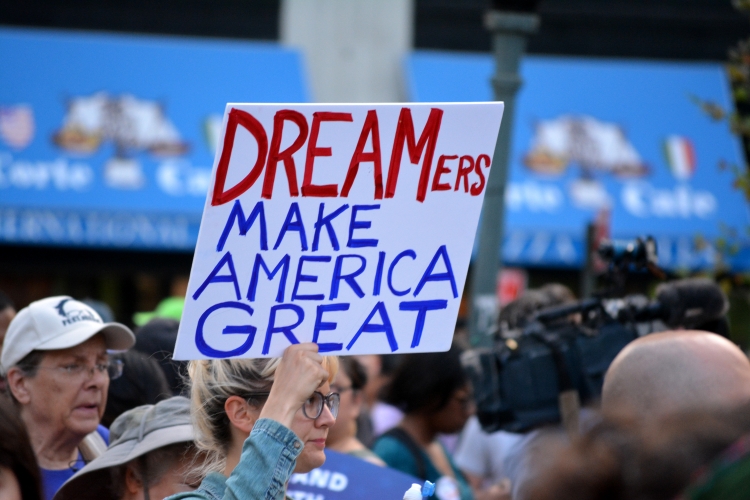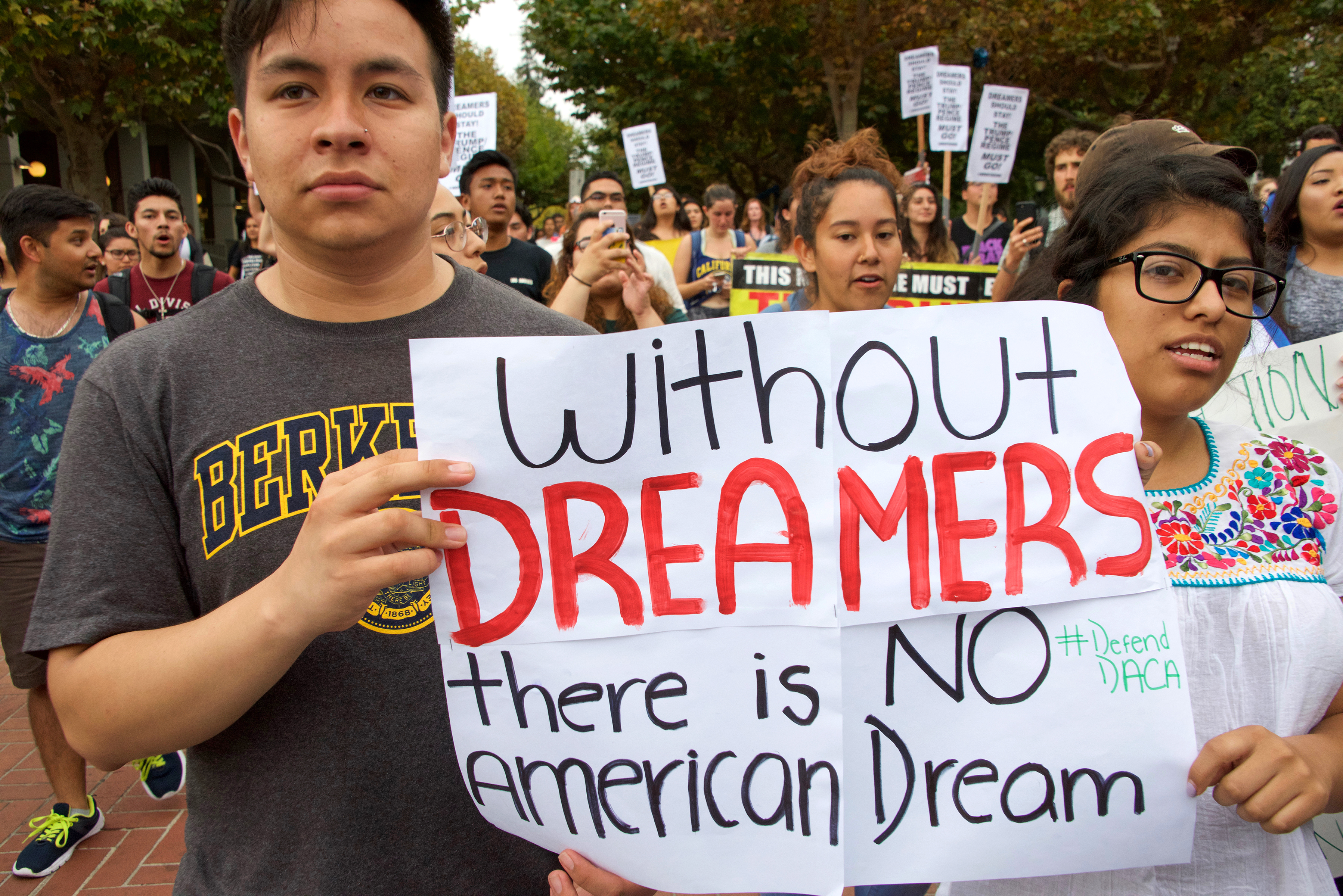DACA in the U.S.

DACA has received a significant spotlight in the American news stories due to its controversy and Trump's indecisiveness that affects the lives of over 800,000 U.S. residents directly, and with the potential to significantly harm American society and economy. DACA stands for the Deferred Action for Childhood Arrivals, an executive initiative passed in 2012 under Obama as a spin-off of another anti-deportation of illegal immigrants program called DREAM, a legislative program still in debate since 2001. It was meant to defer deportation of children who had arrived to the United States illegally through no fault of their own, coupled with the ability to receive residential benefits such as work permits and drivers licenses. The estimated 800,000 children who have benefited from this program are called DREAMers, in referral to the program's origins in the legislative DREAM initiative. Although DREAM had been a legislative initiative since 2001, it has never officially passed Congress. Meanwhile, several states have implemented their own versions of DREAM, California serving as a lead example with its passage of the California Dream Act in 2011.
DACA Controversy
Trump's issue with DACA, however, is it's implementation as an executive initiative, rather than legislative, and is using its circumvention around Congress as grounds for its repeal - by this urging Congress to act upon making DACA into law while giving DACA a six-month phase-out, due to complete during March 2018. His announcement Sept. 5, 2017, gathered many protestors within 24 hours, many of them including young adults from the DACA program. The young adults have been raised in the United States, some not knowing their country of origin, the people, the culture, some DREAMers don't even speak the language of their country. Fear of deportation into a foreign (for them) country while being stripped of the educational and employment opportunities they were opened to in the U.S. was wide-spread among DACA participants and was met with many empathetic U.S. citizens who marched with them against Trump's announcement.
Image Credit: Shutterstock/Sheila Fitzgerald
The reasons behind protests extend beyond moral philosophy and the debate about immigration and citizenship - economists agree the cancellation of DACA would only harm American businesses and economy. In a study published by AmericanProgress.org, "The findings could not paint a clearer picture: DACA has been unreservedly good for the United States economy and for U.S. society more generally." With their research, they found Dreamers would contribute $460.3 billion to American GDP over the next decade - a significant loss to the country should DACA be terminated, and the Dreamers deported.
Mark Zuckerburg, along with other leaders of known business giants such as Bill Gates of Microsoft, have founded an organization aimed at mobilizing the technological community in support for DACA and the protection of the Dreamers "to keep the US competitive in a global economy, starting with fixing our broken immigration system and criminal justice reform," as said on the main page of their website, FWD.us. Contributors and supporters include many more companies such as Instagram, Google, Airbnb, Netflix, as well as politicians, other grassroot leaders, and even some progressive law firms.
Zuckerburg claims the decision to end DACA is "not just wrong," but rather "it is particularly cruel to offer young people the American Dream, encourage them to come out of the shadows and trust our government, and then punish them for it."
Trump on DACA
Following his early September announcement to end the DACA program, the certainty of president Donald Trump to follow through on his promise has begun to shift as he began moving towards negotiations with Democratic congressional leaders on immigration and border security agreement. Immediately following the initial announcement to end DACA, Trump's tweets expressed the continuity of his "Americans First" policy, expressing the time pressure Congress has to pass the DREAM Act first presented in 2001 and still under debate today to replace DACA.
The passage of the DREAM Act is the only chance for DACA recipients to keep their privileges before facing deportation, as the phase-out (and Congress' deadline for DREAM) comes to a close in March 2018.
The combination of protests, open letters, foundations with pressure from big businesses such as Zuckerburg's grassroot foundation, and research encouraging DACA survival for economy and society, have seemed to falter Trump's stable attitude towards the issue. This prompted his meeting with the Democratic congressional leaders.
Following their meeting, last Wednesday, Democrats Chuck Schumer, and Nancy Pelosi have released a statement on their meeting and negotiations with the president. These claims are in the released statement:
"enshrine the protections of DACA into law quickly, and to work out a package of border security, excluding the wall, that's acceptable to both sides."
Concern and fear continue to radiate among Dreamers and their supporters while politicians scramble to find a solution on both sides. The fate of DACA is still in question, while confusion of the direction it's safeguard persists. There is an increase of hope for the Dreamers as DACA's fate becomes increasingly unclear since it's definitive tone in the September 5th announcement by president Donald Trump.
What happens in the next several months will impact the lives of many innocent children forever. Dreamers and supporters continue to speak out, raising awareness to the gravity of this issue through many forms: from protests to videos, rallies, or letters to Congress - before it becomes too late for them.








